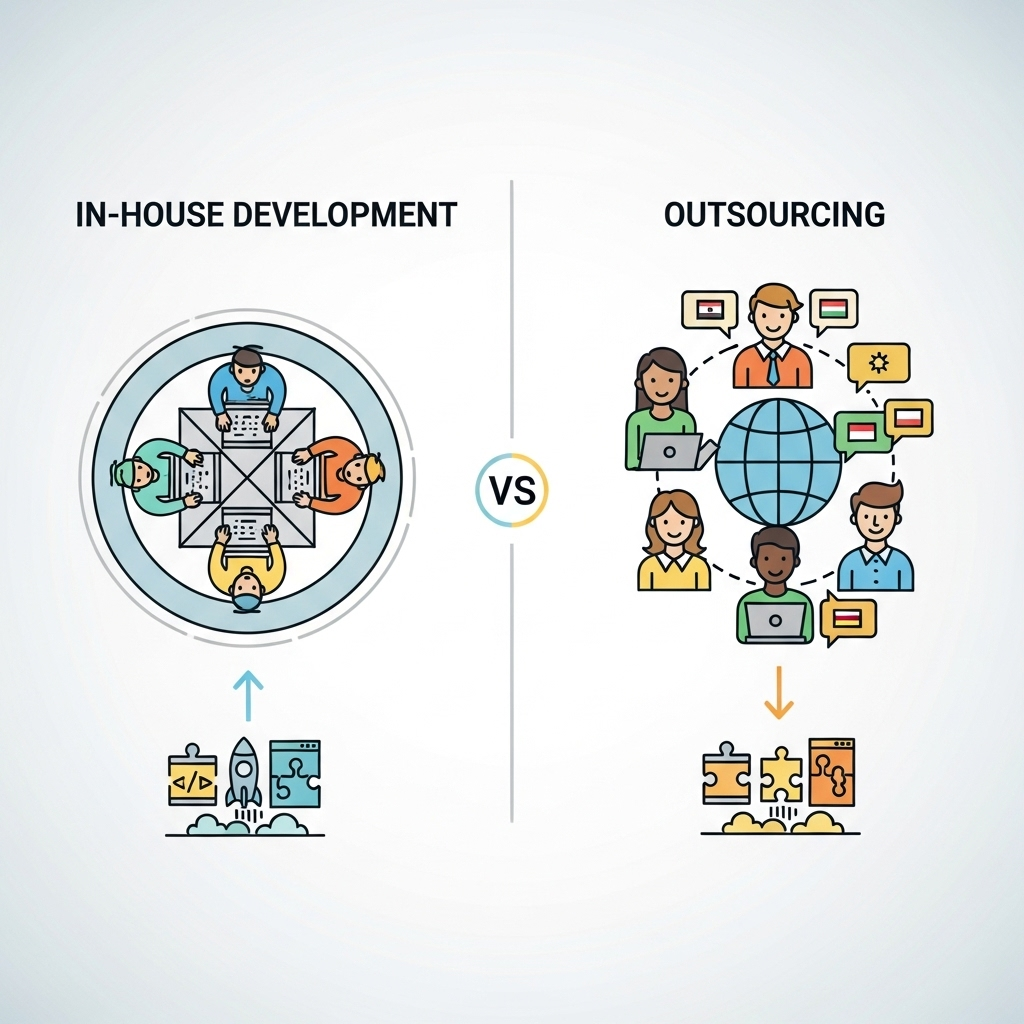Introduction: Understanding Why Companies Choose to Outsource Work
The question of why do companies choose to outsource work? interests many business leaders and curious individuals alike. Outsourcing has become a global phenomenon, shaping industries and driving business growth in unexpected ways. Let’s explore the reasons behind this important decision.

Why Do Companies Choose to Outsource Work? The Main Motivations
Companies have many reasons for outsourcing. Some want to reduce costs, while others seek access to skill sets unavailable in-house. For example, a small business may not afford a full-time software developer but can work with an expert on a project basis. Likewise, businesses may want to quickly scale up or down based on project demands, something outsourcing makes easy. This flexibility is crucial in dynamic markets.

IT Outsourcing Explained: How It Helps Businesses
IT outsourcing is when a business hires external experts to handle its information technology needs. This could be anything from infrastructure management to cybersecurity. Outsourcing IT responsibilities helps businesses focus on their core strengths, like customer service or product innovation, rather than spending time and resources on technical processes.
Software Outsourcing: What It Means and Why It Matters
Software outsourcing means hiring specialists, often from other countries, to design, develop, or test software applications. This is vital for companies that do not have robust internal IT departments but want to stay competitive with new technologies. The growing trend of outsourced software development has enabled startups and established businesses alike to accelerate success.

Benefits of Outsourcing Software Development for Companies
There are many benefits to outsourcing software development. First, it reduces the need to recruit and train expensive full-time employees. Second, it provides instant access to specialized skills. Third, costs can often be controlled more effectively, as outsourcing vendors usually offer transparent pricing models. Finally, companies benefit from faster time-to-market for their products and services, which is vital in today’s fast-paced world.
Outsourcing Software Development vs. In-House Development
Developing software in-house means hiring permanent employees and investing in their training and workspace. It can offer more control but is often expensive and slow. Software development outsourcing is more flexible and can bring in world-class expertise quickly. However, it requires clear communication to ensure alignment between the outsourcing team and the company’s goals. Each approach has strengths and weaknesses, and the choice depends on an organization’s specific needs.

Why Do Companies Choose to Outsource Work? Common Myths and Misconceptions
Some believe that outsourcing means lower quality or a loss of control. In reality, many companies that outsource find improved efficiency and higher quality output. It is also a myth that only large companies benefit from outsourcing. On the contrary, small and medium businesses can access opportunities once reserved for big players.
Exploring Different Types of Software Development Outsourcing
There are several kinds of outsourcing: onshore (hiring from within the same country), nearshore (to neighboring countries), and offshore (to distant countries). Onshore outsourcing is excellent for direct communication, while offshore is cost-effective. Hybrid solutions, combining multiple locations, are also becoming common. Outsource mobile app development is popular with startups who want to save time and money while reaching the market quickly.
How Outsourced Software Development Improves Efficiency
Outsourcing partners offer process optimization, project management expertise, and streamlined workflows. When businesses choose software project outsourcing, they often find themselves spending less time on recruiting and day-to-day management, and more on essential business activities. This increased efficiency can help companies innovate more rapidly and respond to market changes with agility.
Key Considerations Before Choosing to Outsource App Development
Before deciding to outsource app development, companies should consider their goals, budget, and preferred working style. It’s important to select a partner with proven experience, clear communication skills, and a strong reputation. Prices alone shouldn’t dictate your choice; quality and reliability are just as important. Protecting your business’s intellectual property is also essential, so be sure proper contracts are in place.

The Role of Software Testing Outsourcing in Quality Assurance
Quality assurance is essential for reliable software. Software testing outsourcing allows companies to access skilled testers who can find bugs and usability issues before software reaches customers. Outsourcing testing ensures the product meets high standards and complies with industry regulations, all while saving time and resources.
Companies That Outsource: Real-World Examples and Success Stories
Many leading companies have benefited from outsourcing IT and development projects. For instance, Slack, a popular communication tool, began with an outsourced development team. Google and Microsoft have histories of using outsourcing for various non-core processes. By collaborating with external experts, companies of all sizes have delivered innovative products with impressive speed and quality.
Application Development Outsourcing: When Is It the Right Choice?
If your business lacks the necessary technical skills or needs to quickly bring an app to market, application development outsourcing makes sense. It is especially useful for companies with fluctuating demand or those that need temporary skill boosts. Companies can also access the newest technologies without investing heavily in upskilling their staff.
Overcoming Challenges in Programming Outsourcing
While there are many advantages to programming outsourcing, there can also be challenges. Time zone differences, language barriers, and misaligned expectations can impact outcomes. To overcome these, choose a trusted outsourcing partner, set clear communication guidelines, and use collaborative tools. A partner like Blanmo can simplify this process and help your business thrive.
Conclusion: Is Software Project Outsourcing Right for Your Business?
So, why do companies choose to outsource work? It’s simple: they want to operate more efficiently, competitively, and innovatively. Outsourcing isn’t just for tech giants; it’s a strategy any business can use to grow and adapt. When done carefully, it can empower your organization and lead to lasting success.
